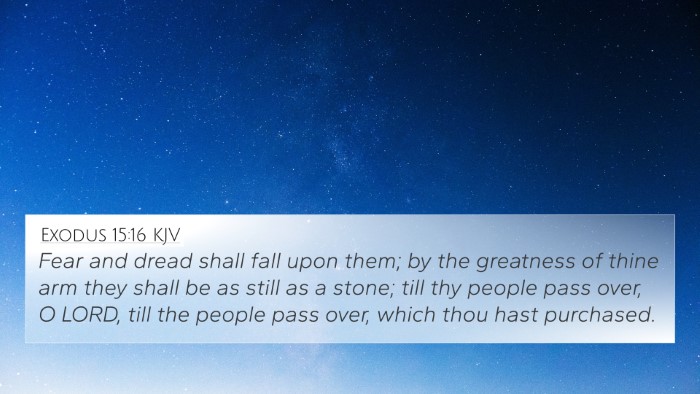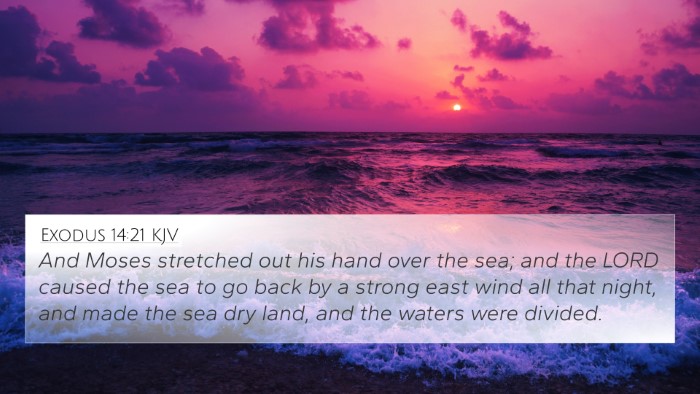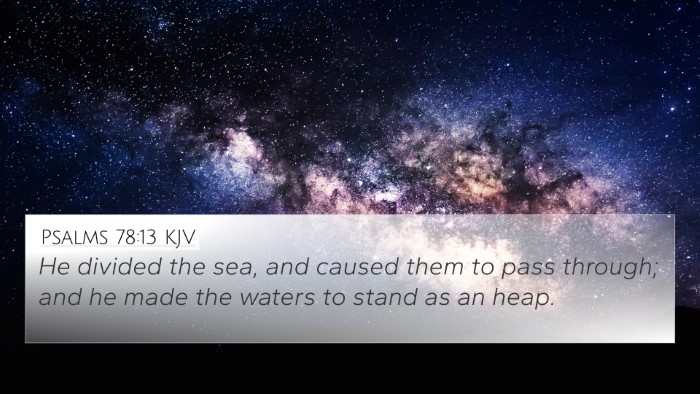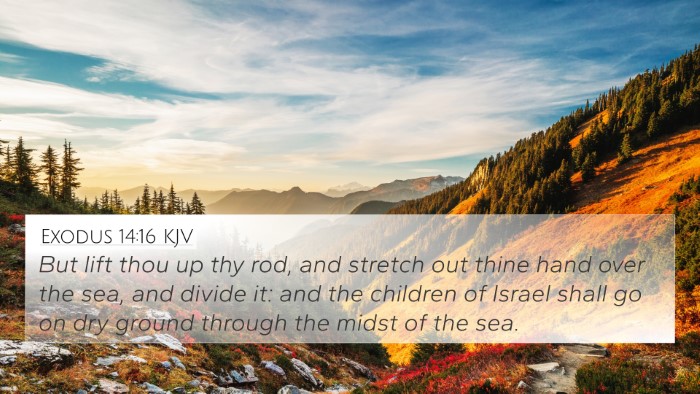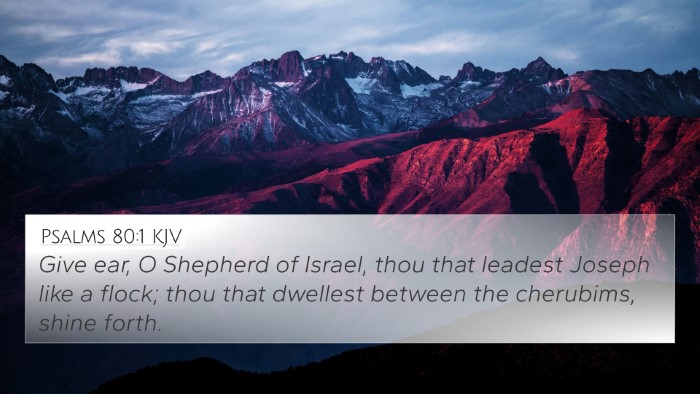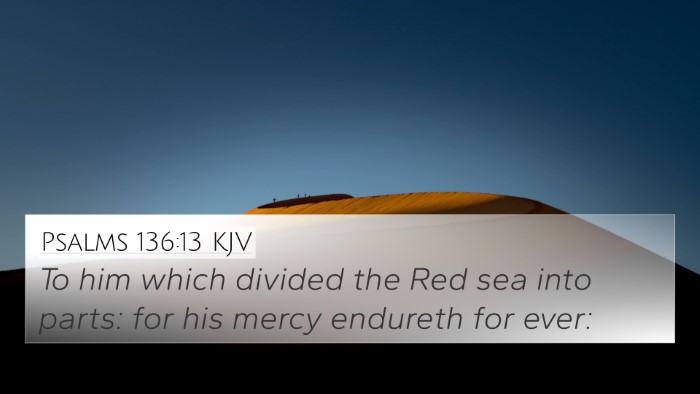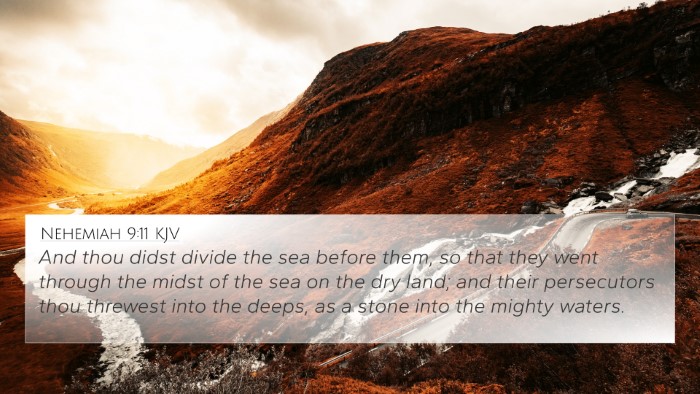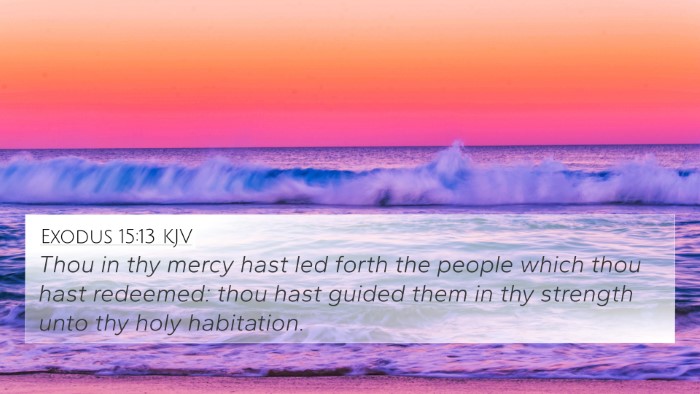Understanding Isaiah 63:12
Isaiah 63:12 is a verse rich in meaning, emphasizing the sovereignty of God and His guiding presence amongst His people. It reads:
"That led them by the right hand of Moses with his glorious arm, dividing the water before them to make himself an everlasting name?"
Verse Summary
This verse reflects upon God's provision and guidance to the Israelites during their exodus from Egypt. The "right hand of Moses" symbolizes divine authority and power, while the "glorious arm" signifies God's might. The act of parting the waters, a central miracle in the Exodus narrative, serves not just to deliver Israel, but also to manifest God’s glory, thus establishing His everlasting name.
Commentary Insights
Matthew Henry's Commentary
Matthew Henry emphasizes that the mention of Moses and the miraculous parting of the waters highlights God's leadership and intervention in human affairs. He points out that God not only delivered the Israelites but also used this event to demonstrate His power, setting a precedent for future generations about His faithfulness and ability to save.
Albert Barnes' Notes
Albert Barnes provides an analysis of the phrase "led them by the right hand of Moses,” illustrating that it signifies God’s support and empowerment of Moses during the Exodus. Barnes also notes the significance of the miracle in making God's name known, pointing to a theme of divine revelation and the importance of remembering God's works.
Adam Clarke's Commentary
Adam Clarke attributes the divine command behind the actions of Moses, explaining how God orchestrated the events for His people’s benefit. Clarke draws attention to the "everlasting name" which indicates that the memory of this deliverance would continue to inspire faith and awe among God’s people through the ages.
Cross References and Thematic Connections
Isaiah 63:12 can be cross-referenced with several compelling scriptures that reinforce its themes:
- Exodus 14:21-22: Describes the parting of the Red Sea, emphasizing God’s miraculous deliverance.
- Deuteronomy 26:8: References the powerful hand of God in leading Israel out of Egypt.
- Psalm 106:7-12: Reminds of God’s works during the Exodus and how the Israelites witnessed His miracles.
- Isaiah 11:11: Talks about the remnant of Israel being gathered by God’s hand, showcasing His continued guidance.
- John 8:58: Jesus’ declaration of eternal existence connects to the theme of God’s unchanging nature.
- Hebrews 11:29: Commends the faith of Israel in crossing the Red Sea, linking back to their reliance on God's guidance.
- Psalm 77:13-15: Describes God’s holiness and might demonstrated through the Exodus, resonating with Isaiah’s proclamation of His name.
Thematic Bible Verse Connections
The thematic connections between these verses strengthen the overall narrative of divine deliverance and guidance. In the context of cross-referencing Biblical texts, one can find a schema wherein God's power is depicted consistently throughout scripture, showcasing how He intervenes decisively in history.
Exploring Connections
In comparative Bible verse analysis, these themes offer a vital understanding of God's character across the Old and New Testaments. The acts of God, such as leading Israel out of Egypt, underscore His identity and the covenant relationship He maintains with His people.
Tools for Bible Cross-Referencing
Utilizing a bible concordance or a bible cross-reference guide can enhance your study. Understanding how to identify these connections is a valuable skill in exploring the depths of biblical themes, including the threads of deliverance, power, and worship found in these passages.
Conclusion
Isaiah 63:12 serves as a powerful reminder of God’s continual presence and care in the lives of His people. By exploring inter-Biblical dialogue through cross-references, we gain a fuller understanding of scripture and deepen our faith in the One who leads and saves. Engaging in cross-referencing Bible study methods will undoubtedly enrich your understanding of the biblical narrative and its theological implications.



